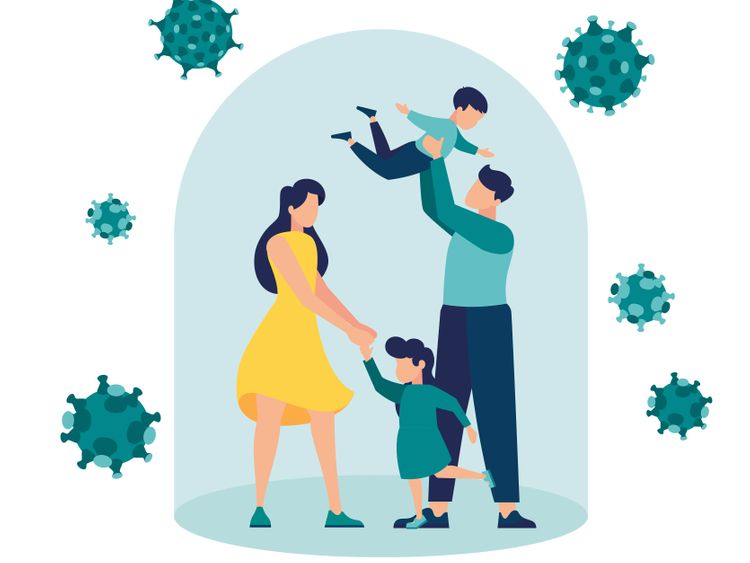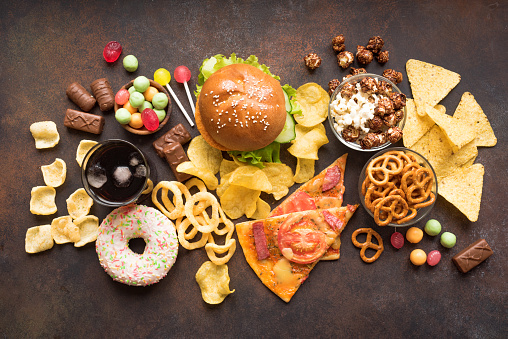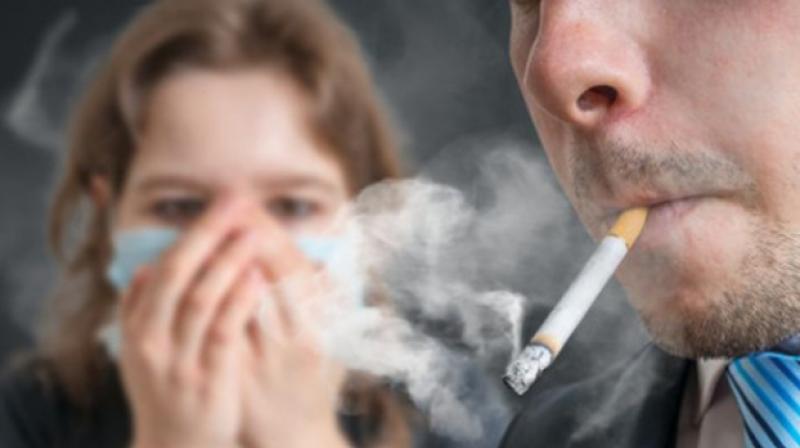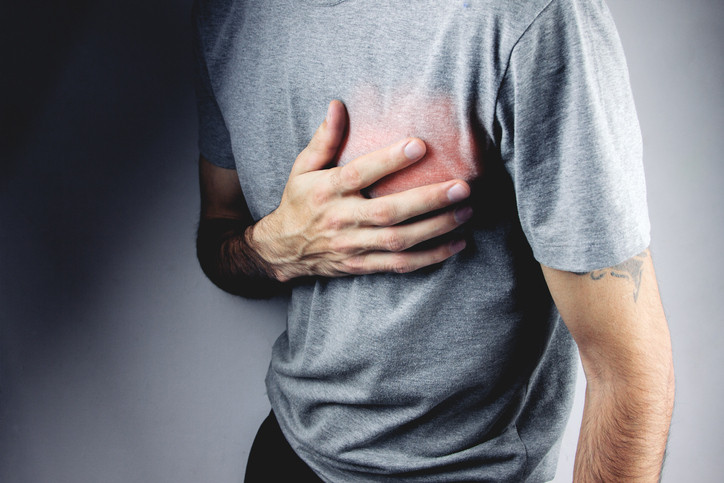How to Protect Your Child Who Can’t Get the COVID-19 Vaccine Yet here is information of covid 19 care tips mask care tips for kids
Most COVID-19 infections have been in adults, but kids can get infected. In children, the virus sometimes causes a mild illness, or no symptoms at all. But some babies and children have gotten very sick from the virus, sometimes weeks after becoming infected. Kids under age 2 can’t wear masks or get a COVID-19 vaccine. So, it’s important to protect them in other ways.
- getting a vaccine and booster shot when possible
- social distancing (also called physical distancing)
- washing hands well and often
- in some cases, mask-wearing (over age 2)
How Does Wearing Masks Help?
Coronavirus can spread when people breathe, talk, cough, or sneeze. This is true even for people who feel fine and have no symptoms — they can still be infected and not know it. When someone wears a mask, it keeps the virus from reaching other people if they are infected, and also protects them from catching the virus from others.
And children under 2 years old are protected from infection when people around them wear masks.
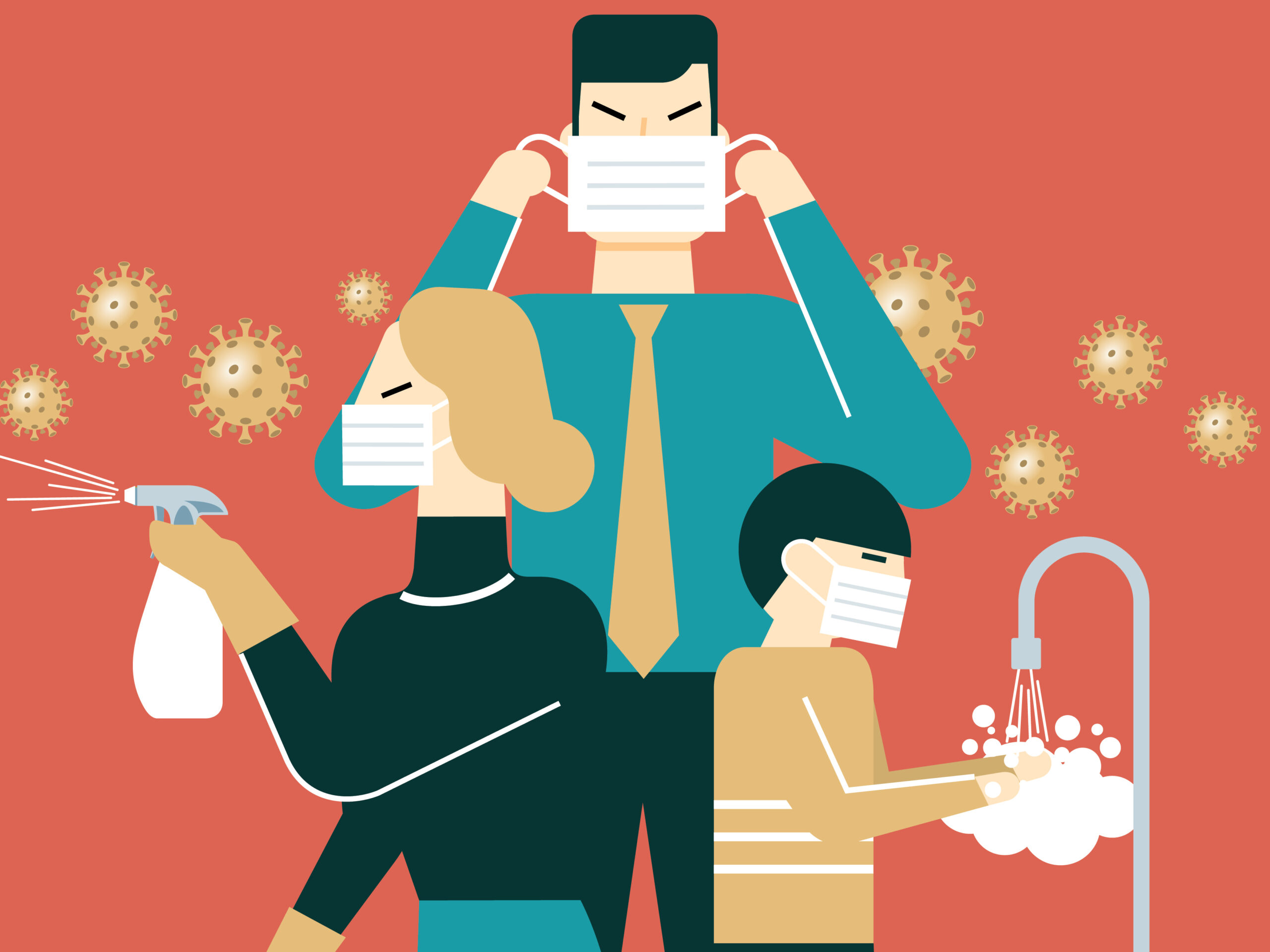
Why Shouldn’t a Baby or Toddler Wear a Mask?
Babies and toddlers under 2 years old shouldn’t wear a mask because:
- They have smaller airways, so breathing through a mask is harder for them.
- If it’s hard for them to breathe and they can’t tell anyone or take the covering off by themselves, they could suffocate.
- Some homemade masks might have pieces that a baby could choke on, such as strings or elastic bands.
- They will likely try to remove the mask, causing them to touch their face a lot. This can increase their risk of catching and spreading the virus.
How Can I Protect My Baby or Toddler From Coronavirus Infection?
You can protect your little one by avoiding large crowds and keeping a safe distance (at least 6 feet) from other people when out of the house.
To help stop the spread of the virus:
- Anyone in your household who can get a COVID-19 vaccine should do so. Booster shots also are recommended for adults and kids 12 and older.
- Avoid people who are sick.
- Wash your hands well and often, and teach others in your home to do the same. This is especially important:
- when you go back into your home from being outside
- before handling your child
- before breastfeeding or preparing a bottle or food
- Clean surfaces and objects that people touch a lot (like doorknobs, countertops, and cellphones).
- Try not to touch your eyes, nose, and mouth.
- Sneeze or cough into a tissue or your elbow, not your hands.
- Wear a mask at home if you are sick. Try to limit contact with your child until your symptoms are gone.
- If you take your child out in an infant carrier, you can place a blanket over the carrier while it’s within your view. Make sure the blanket doesn’t touch the baby. Wipe down the carrier or stroller when you get home.
Can I Take My Child to the Doctor’s Office for Vaccines and Other Care?
Yes. Doctors’ offices have taken steps to keep patients safe. These include regular deep cleaning, limiting the number of people in waiting areas, screening people who enter the building, and requiring masks for anyone over 2 years old.
When you call, ask the staff what they’re doing to keep patients safe so you can be prepared. For example, they may allow only one parent or caregiver to go with the child.
Stay in touch with your child’s doctor about:
- Vaccines and well visits. Keeping your child’s vaccines up to date is a key way to keep your child healthy. Ask how your health care provider is giving vaccines and doing regular checkups. Some do well visits through tele health while others might postpone an in-person visit. For newborns or children with complex medical conditions, they may want to schedule an in-person visit right away. They will work with you to answer your questions and make sure your child gets any needed vaccines and checkups.
- Sick visits. If you think your child is sick, don’t wait to get care. Call your doctor for advice or instructions.
Call 911 right away if your child might have a health emergency. Signs include your child turning blue, not breathing, being very sleepy or hard to wake up, or being unconscious.
